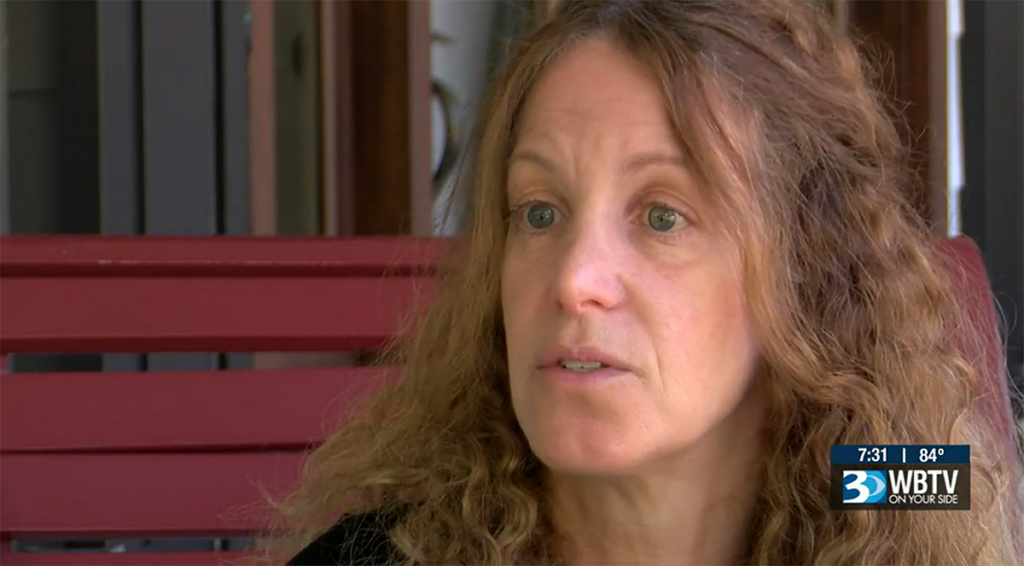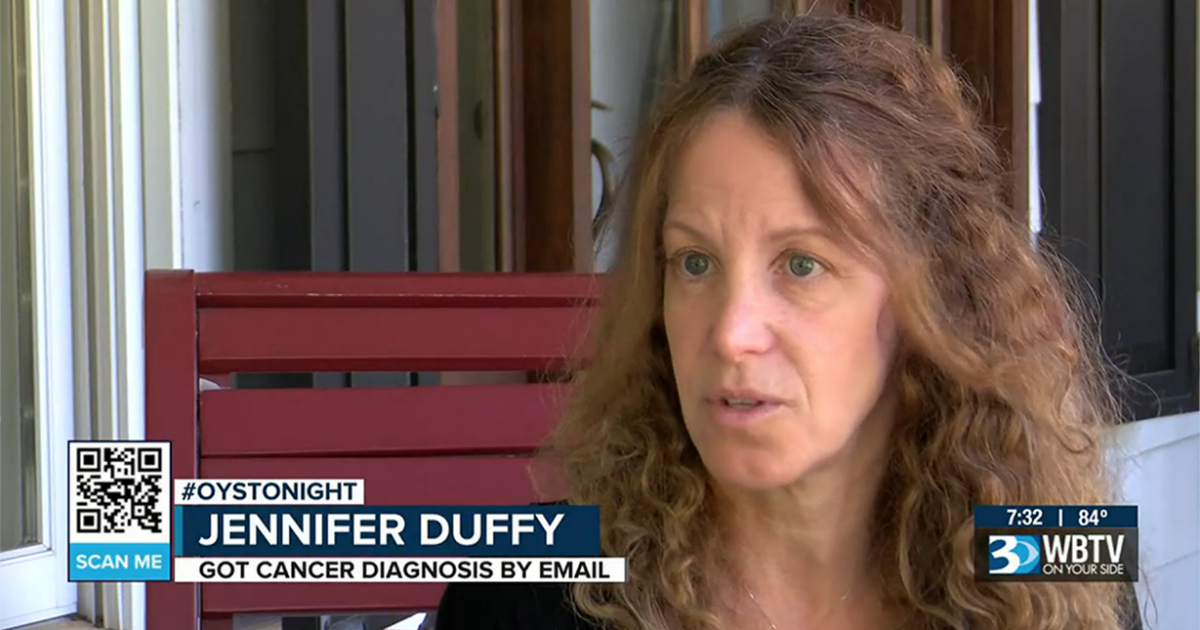The Importance of Genetic Testing for Breast Cancer
- A young woman with a history of breast cancer in her family was shocked to learn via email that she had the same disease that killed her mother.
- It’s important that people with a family history of breast cancer, like Jennifer Duffy, undergo genetic testing.
- This type of testing is done to determine if a person has a specific mutation that puts them at a higher risk of developing cancer.
When Jennifer Duffy, who’s from South Carolina, received her biopsy results in an email, she didn't think she had anything to worry about.
Read More
She made multiple phone calls to several different doctors. When she finally reached someone, she was told that her doctor hadn't even seen her biopsy results yet.
Jennifer told the television station that the person she spoke with said "they would 'find out' who was supposed to call her."
However, there's a rule inside the 21st Century CURES Act that requires a patient to get lab results as soon as they're posted, which she said no one told her.
This is called information blocking, according to the television station. It requires a health care provider to give patients access "without delay" to their electronic health information, including lab results.

But Jennifer wasn't satisfied by this, and she wants her story to be a lesson to others.
Jennifer's Family History
"When I was 13, my mother was diagnosed with breast cancer," Jennifer said.
The breast cancer her mother was diagnosed with was an "extremely aggressive" form of the disease called inflammatory breast cancer. She found the disease for two years, but unfortunately passed away at just 38 years old, when Jennifer was just 15.
Related: Genetic Testing for Breast Cancer: What is This Type of Test? And What Do My Results Mean?
"My goal was to outlive her when there wasn't a cure for it, and I was in my 30s and my biggest fear has always been since I was 13 that I would get breast cancer," she said.
That's why Jennifer began getting annual mammograms in her 30s way before the recommended age of about 45. A recent mammogram showed there was a need for a biopsy, which prompted her emailed test results.
What is Genetic Testing?
It’s important that people with a family history of breast cancer, like Jennifer, undergo genetic testing.
This type of testing is done to determine if a person has a specific mutation that puts them at a higher risk of developing cancer.
Genetic testing can be done on samples of blood or saliva, or from a swab of the inside of a cheek, according to the American Cancer Society. The samples are sent to a lab for testing.
Genetic testing for cancer is usually done in a doctor's office (either your primary care doctor or an OB-GYN), but there are a few tests available for people to purchase commercially.
Where Can I Get Genetic Testing?
What Are the Types of Gene Mutations?
Before taking a genetic test to see if you have a higher risk of developing breast cancer, it's important to be educated on the different types of gene mutations that increase your risk of this cancer.
The most common breast cancer gene mutation, and the one doctors have known about the longest, is the BRCA gene mutation. The BRCA1 (BReast CAncer 1) or BRCA2 (BReast CAncer 2) genes help cells repair their DNA damage. Having a change, or mutation, in one of these genes increases a woman's risk of getting breast cancer. These gene mutations are commonly passed down in families; if a parent carries a BRCA gene mutation, there's a 50-50 chance you could be carrying it as well.
Between 5% and 10% of breast cancer cases are thought to be hereditary. And about 10% of patients who undergo genetic testing will test positive for the BRCA1 or BRCA2 gene, Dr. Julie Rani Nangia, an assistant professor at Baylor College of Medicine, perviously told SurvivorNet.
"The genetic BRCA1 and (BRCA)2 mutations, if a woman has one of these mutations … it puts her at basically the highest quantifiable risk for getting breast cancer," Dr. Port said. "We typically say between the 60 (percent) and 80 percent range. Having a BRCA1 and (BRCA)2 mutation also means that that person is at higher risk of getting breast cancer at an earlier age, and also maybe at risk for other cancers like ovarian cancer, like pancreatic cancer for men, prostate cancer and male breast cancer may be a concern."
Since the discovery of the BRCA mutations in the 1990s, doctors have gone on to identify many other gene mutations that put people at a higher risk of developing breast cancer.
"There's actually eight to 10 genes that also can put someone at a higher risk for breast cancer," Dr. Port said, adding that usually that risk isn't as high as the BRCA mutations. These additional gene mutations include PALB2, ATM, TP53, CHEK2, PTEN, CDH1 and STK11.
Should I Get Genetic Testing to Assess My Risk for Breast Cancer?
"We call them more moderate penetrance genes and those genes, the risk of breast cancer associated with them can be anywhere from say 20 percent to 50 percent. … so still very high, but lower than the BRCA genes that were the ones we originally described."
The PALB2 gene is a "moderate penetrance gene, and the risk of getting breast cancer with PALB2 can be a pretty broad range," Dr. Port said. "And unlike the BRCA genes where we don't really use the family history of who got breast cancer to affect the risk estimates, with PALB2, you really can dial up risk or dial down risk depending on how many relatives and the age of the relatives in the family got breast cancer."
Learn more about SurvivorNet's rigorous medical review process.


